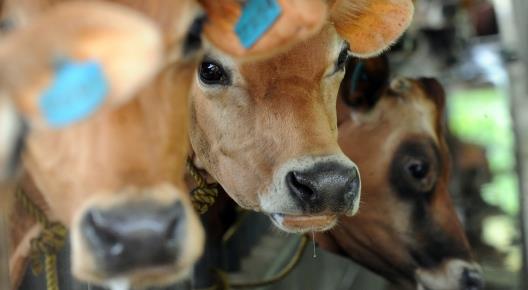There is only One Health!

A statement from the Food and Agriculture Organization of the United Nations (FAO) Regional Office for Europe and Central Asia, the World Organisation for Animal Health (OIE) Sub-Regional Representation for Central Asia, and the World Health Organization (WHO) Regional Office for Europe.
On the occasion of World Antibiotic Awareness Week 2018, our three organizations, leaders in the fight against antimicrobial resistance (AMR), have chosen to speak with one voice. We are calling upon governments to use the “One Health” approach in the fight against AMR, and bring together human health, animal health and environment health as one. We believe this cross-sectoral approach is the best way to make real progress in fighting AMR in Europe and worldwide.
AMR is widely recognized to be one of the 21st century’s greatest threats to health, welfare and food security. Worldwide, an estimated 700 000 people die each year from drug-resistant infections, and in the European Union and European Economic Area alone, 33 000 lives are claimed each year, with these numbers on the rise.
The One Health approach requires professionals with a range of expertise in public health, animal health, plant health, food and the environment to work together to minimize threats from AMR, and to gather evidence to identify and urgently address areas of highest risk.
Infections caused by resistant bacteria, fungi, viruses and parasites know no borders. The same classes of antimicrobials are used in humans and food-producing animals alike and the food chain is an important route for transmission. This means that action from one sector alone cannot control the entire problem and efforts need to be made at all levels – local, national, regional and global – by the whole of society and the whole of government.
We urge governments to invest in campaigns that encourage their citizens to “think twice and seek advice” and only use antimicrobials in line with a prescription from human or animal health professionals.
We also encourage governments to phase out the use of antibiotics as growth promoters in animals. This effort includes investment in better access to vaccines and rapid and affordable diagnostics, as well as good hygiene and biosecurity practices.
We applaud those who avoid frequent use of critically important antibiotics that feature on the reserved lists and have the greatest importance to human and animal health.
Together we are stronger, and we are heartened by the commitment shown by countries, governments, and human and animal health professionals as well as the private sector – without this we cannot succeed. But to effectively address AMR, we need to further strengthen this commitment.
We need to work together to ensure prudent use of antimicrobials when treating human and animal illnesses; now is the time to act to maintain our ability to cure humans and animals for generations to come.
15 November 2018, Budapest, Hungary
